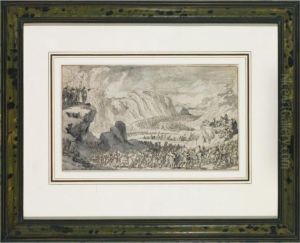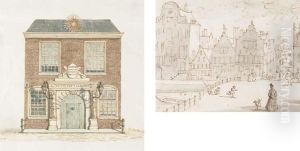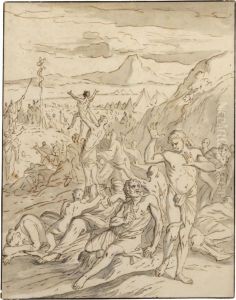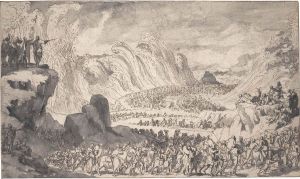Caspar Luyken Paintings
Caspar Luyken, born in 1672 in Amsterdam, Netherlands, was a notable engraver and illustrator of the late 17th and early 18th centuries. He was part of the famous Luyken family, which played a significant role in the Dutch art scene of the time. His father, Jan Luyken, was a well-known poet, illustrator, and engraver, ensuring that Caspar was immersed in the world of art from a young age. Despite the prominence of his father, Caspar managed to carve out his own niche and reputation in the art world, primarily through his detailed and exquisite engravings.
Caspar's work often reflected the religious and moral themes popular in the Netherlands during his lifetime. He collaborated with his father on several projects, contributing to books and publications that combined visual art with religious and philosophical texts. One of his most significant contributions was to the illustration of biblical scenes and stories, which were highly regarded for their detail and expressiveness. Through these works, Caspar demonstrated not only his technical skill but also his ability to convey complex narratives and emotions.
Despite his talent and the quality of his work, Caspar Luyken's career was relatively short-lived. He died in 1708, at the age of 36, leaving behind a modest but impactful legacy. His engravings continue to be appreciated for their beauty and precision, and they serve as valuable examples of Dutch engraving from the period. Caspar’s contribution to the field, though not as extensively documented as that of some of his contemporaries, remains an important part of the history of Dutch art, reflecting the rich cultural and religious life of his time.



